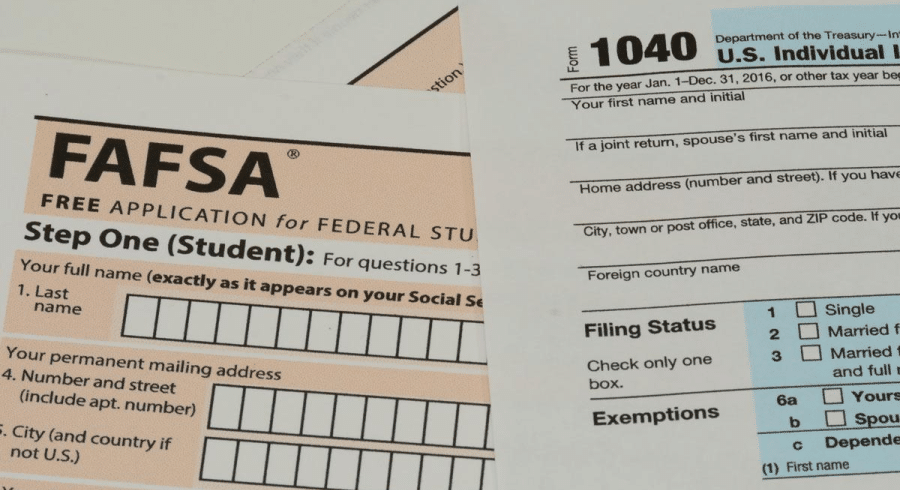Got Stock Grants? One Tip To Curb Your Tax Bill
If you’re like other tech executives, you probably have your fair share of stock grants. Equity incentives are very popular these days but can be confusing—especially from a tax standpoint.
There are different kinds, various ways of taxing them, and even some little-known opportunities for minimizing taxes.
One such opportunity is called a Section 83(b) election.
WHAT IS A SECTION 83(B) ELECTION?
Table of Contents
Never heard of a Section 83(b) election?
You’re in good company; hardly anyone else has either!
However, it’s something that could potentially save you a lot of money on taxes, so you should be aware of it.
Equity grants are considered taxable compensation, and a Section 83(b) election tells the IRS that you want to report income tax the year your stock is granted instead of waiting until it vests.
Normally, you don’t pay taxes until the stock vests and you actually take ownership of it. With an 83(b) election, you choose to pay taxes on the stock before it actually becomes yours.
THE RISKS & REWARDS OF A SECTION 83(B) ELECTION
Why would you choose to pay taxes on something that’s not actually yours yet? Because the tax bill might be a lot lower then!
The taxes you pay are based on the fair market value of the stock.
When you are granted stock that doesn’t vest for 3 years, there is a good chance the price of the stock will increase during those 3 years.
The 83(b) election allows you to calculate your tax bill based on the lower stock price on the grant date rather than the higher price at vesting. The higher vesting price could also push you up into the next, higher tax bracket. In fact, tax rates could increase during those 3 years and you would end up paying a higher rate overall.
So, why wouldn’t you choose this option?
Well, there are a number of risks involved.
First of all, the taxes you pay are not refundable. If you leave your company before the stock vests, you will have paid taxes on stocks that you never received. A Section 83(b) election is nearly impossible to rescind or cancel once made. If you pay taxes early, you risk paying taxes that you will never actually owe.
Also, the stock price could go down between the grant and vesting date, which leaves you paying more taxes than you would have if you had waited.
Another risk is that the tax rates will go down, as they did with the Tax Cuts & Jobs Act. If you are married with a taxable income of $300,000, you would have gone from the 33% tax bracket in 2017 down to 24% for 2018.
That’s a big difference.
HOW A SECTION 83(B) ELECTION WORKS
To make a Section 83(b) election, you have to contact your local IRS office within 30 days of the grant date.
Also, you will need to have enough cash up front to pay the taxes, since the stock is not yet yours to sell. Let’s take a look at how a Section 83(b) election would play out in real life.
Let’s say you are granted 3,000 shares when they are worth $15 each and you are in the 32% tax bracket. The shares vest after 3 years when they are worth $50, at which point you sell them with a capital gains rate of 18.8% (including the Medicare surtax).
This is what you would end up paying in taxes for each option:
| With Section 83(b) Election | Without Section 83(b) Election | |
| Income Taxes Due At Grant | $14,400 | $0 |
| Income Taxes Due Year 3 | $0 | $48,000 |
| Capital Gains Taxes Due | $19,740 | $0 |
| Total Taxes Paid | $34,140 | $48,000 |
This example results in a $13,860 tax savings with the Section 83(B) election.
If the income from the grant pushed you into a higher tax bracket, the savings would be even greater!
As you can see, an 83(b) election has the potential to save you a lot of money in taxes.
However, it is not without its risks.
NEXT STEPS…
You don’t have to weigh the reward and risks of an 83(b) by yourself!
We are here to help you understand an 83(b) election and all the other aspects of financial planning for tech executives.
It is important to make an educated decision before the IRS window closes. You only have 30 days once the stock has been granted.
Schedule a quick call with Richard, at Archer Investment Management to discuss the pros and cons of making an 83(b) election for yourself.
You’ve got more to tackle on your to-do list than worry about how to make smart decisions with your money.
At Archer, we make managing your money easy, so you can get back to your life.
Not a tech executive? That’s okay! We can help you too.
Schedule a quick call with us and see if we can help simplify your finances.
ABOUT RICHARD
Richard Archer is a financial advisor and the President of Archer Investment Management with more than twenty years of industry experience. He specializes in providing comprehensive financial planning and investment guidance and personalized care and attention to executives with complex compensation and families pursuing financial freedom. Along with holding a Wharton Bachelor of Science in Economics and a Texas MBA, he is a CERTIFIED FINANCIAL PLANNER™ certificant and a Chartered Financial Analyst®. He combines his advanced industry education and knowledge with his genuine care for people to provide clients with an exceptional experience. To learn more about Richard, connect with him on LinkedIn or visit www.archerim.com.











